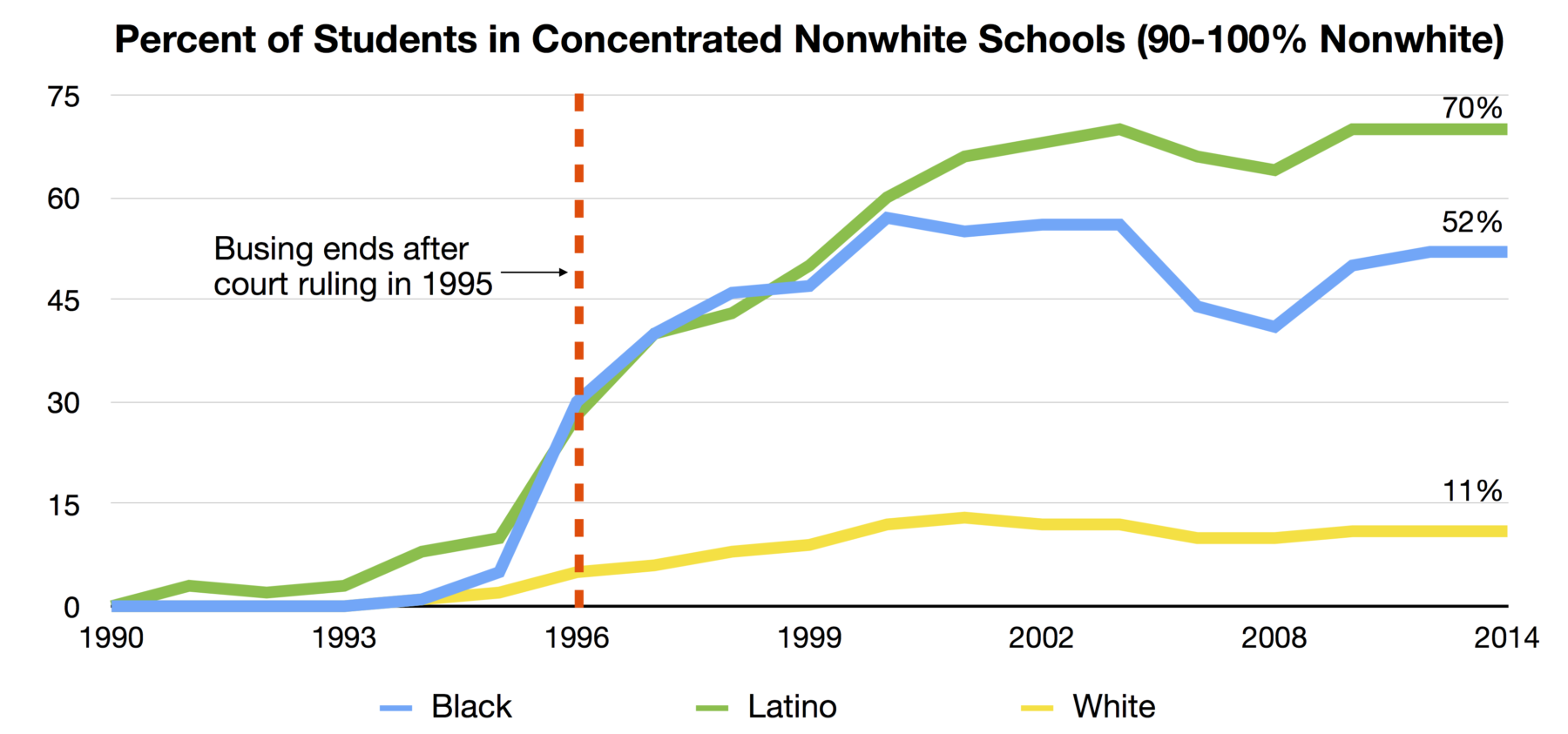I started working in Denver twenty years ago, the same year that forced busing, the federally mandated school integration plan, ended. That year many schools went through a dramatic change in population as schools returned to primarily serving neighborhood students. There were few schools post-busing that were both effective and racially integrated. Those schools (mostly middle and high schools) while diverse, were also highly tracked, concentrating students of color in the lowest academic programs.
Research on the impacts of integrated schools and my own experience attending racially integrated schools in the 60’s and 70’s, has shown that there can be huge benefits to all students– whether disadvantaged or privileged, white, black or brown– when attending a diverse school. This American Life recently did a two-part series that highlighted the experiences and benefits to those attending integrated school environments.
When busing ended I had the sense that many in Denver felt that the district could get back to business as usual, maintaining traditional neighborhood schools and creating magnets seemingly designed to keep white middle class kids in the district. I was troubled then, and remain so now. There is next to no public policy discussion or proposals to encourage having more socio-economically and racially integrated student bodies in our public schools. The exception being a recent DPS board retreat where there was some discussion about what might be done to mitigate against Denver’s school segregation.
You can plainly see the changes over time in Denver and the trends are not favorable.

You can see more about the breakdown of schools and which schools are the most integrated here.
When I and others (friend and collaborator Alan Gottlieb) have raised these issues over the last decade, many district leaders and school board members told us that these issues were too intractable to tackle.Housing patterns are hard to overcome, transportation too expensive, or that there were too few white kids in Denver to make it work. I believe many of these responses are excuses, and there are any number of education policies that can be done (in addition to having much better mixed income and zoning policies).
Here are six policies that the DPS Board could consider that would have a significant impact on creating more integrated schools in Denver:
- Sponsor more discussions about the costs, benefits, and experiences of having integrated and segregated schools in Denver.
- Hold a percentage of classroom seats (40-50%) in Denver’s highest quality schools for low-income families, giving these families greater access to high-performing schools and allowing these schools to benefit from having a diverse student population. DSST and Odyssey Charter schools have these policies, but other DPS schools could afford to adopt them.
- Create shared enrollment zones not only for schools serving low-income students but for neighborhoods that have different racial and socio-economic student populations. Recent positive examples include Northfield High and McAuliffe Middle that allow for students from different income neighborhoods near one another to attend the same school (a sharp contrast to the boundary created for Manual when busing ended).
- Provide incentives through the SPF and other means to support schools in reaching out to establish more diverse student bodies
- Slowly change existing neighborhood school boundaries so that they cover more mixed income housing and/or can allow for more students to choice in from outside the boundary.
- Give first preference for the district’s best schools for students that are attending schools that have been placed on “turnaround.”
Some of these policies or practices have been tried by individual DPS schools or the district but there has yet to be a concerted effort to create more integrated schools across the district.
I think it is time for DPS to step up.
A+ Denver will be working with the Gates Family Foundation to continue the dialogue on the role of race in schools. Look for an event after the new year, we’ll be screening the Rocky Mountain PBS series Standing in the Gap, and pulling together thought leaders for a facilitated dialogue.